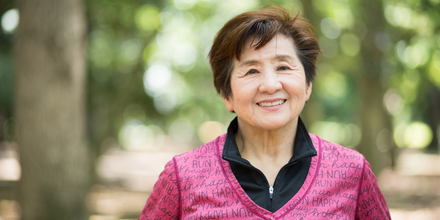As women age, they naturally experience changes to their bodies, nutritional needs, and energy levels. We quickly realize we aren’t 20 anymore, and the lifestyle many of us followed for years may not work as well as it did in the past. This is normal. As these changes occur, women can make certain modifications and lifestyle changes to ease the transition into older age.
Lifestyle Changes for Women to Age Healthy
Changes in Metabolism
You can’t eat like you are in your 20’s when you are in your 40’s. Why is this?
Starting around age 40, your metabolism slows and the rate at which you burn energy decreases. Metabolism is the amount of energy (calories) your uses body to maintain itself and perform necessary functions. A slower metabolism can result in weight gain if you aren’t adjusting your diet and physical activity levels with age.
Lower estrogen levels and muscle loss can also make weight management harder. Muscle tissue burns more calories at rest than body fat. When you lose muscle mass, you burn less calories per day on average, so maintaining and building muscle mass is important.
What’s the fix?
- Strength Train: Work on building muscle mass. Cardiovascular activities like walking and running are great, but consider adding strength-training exercises a few days per week. Using free weights, doing yoga exercises, or taking strength-based classes can help.
- Practice Mindful Eating: Watching your calories and portion sizes can greatly decrease the total volume of food you eat each day and over time.
- Watch the Extras: Choose alcohol, sweets and heavy sauces in moderation. The extra calories can add up quickly, resulting in weight gain or slowing your weight-loss progress.
- Fill up on the Right Foods: Nourish your body with lean protein while adding in plenty of produce, whole grains and dairy.
Changes in Nutritional Needs
There are some nutrients you may need a little more of when you age. Get your annual labs done and pay close attention to your blood work to give your body the nutrition it needs.
- Calcium: When estrogen levels drop, it’s more difficult to absorb calcium. Women over 50 should take in at least 1200 mg of calcium daily, while women in their 40s only need around 1,000 mg. There are plenty of calcium-rich foods such as milk, yogurt, and calcium-fortified options including cereals and orange juice. Calcium supplements also exist over-the-counter if you struggle to get enough calcium from food alone.
- Protein: Along with strength-training to build muscle, you need protein to fuel your body and maintain muscle mass. Add a protein to each meal and snack to make sure you are meeting your daily needs.
- Healthy Fats: Your risk of heart disease increases with age. Adding healthy fats to your diet a couple times per week can reduce your risk. Salmon, sardines and other Omega-3 fatty acids are great sources of heart-healthy fats.
Make Time For Check-ups
Take extra care of your body as you age by visiting your health care team regularly. Health screenings and appointments can catch issues early on so they can be addressed.
- Mammograms: Screening for breast cancer is important for early detection. You can do regular self exams as well as mammograms, which are X-rays of the breast. After age 40, speak to your healthcare provider about how often you should have mammograms done.
- Blood Pressure: Screenings for blood pressure are very important and should be done at least annually. A range of 120-129 mg Hg for the systolic reading and 70-80 mg Hg for the diastolic reading is ideal.
- Colorectal Screening: A colorectal screening is recommended after the age of 45. Speak to a healthcare professional about your needs and options.
Takeaways
Healthy aging involves healthy habits like healthy eating, regular physical activity (especially strength-training) and regular checkups.
Women have unique needs as they age and experience many changes, both physically and mentally. The tips above can help you thrive as you get older and protect yourself against chronic diseases. You will not regret the extra time you spend on your health!






